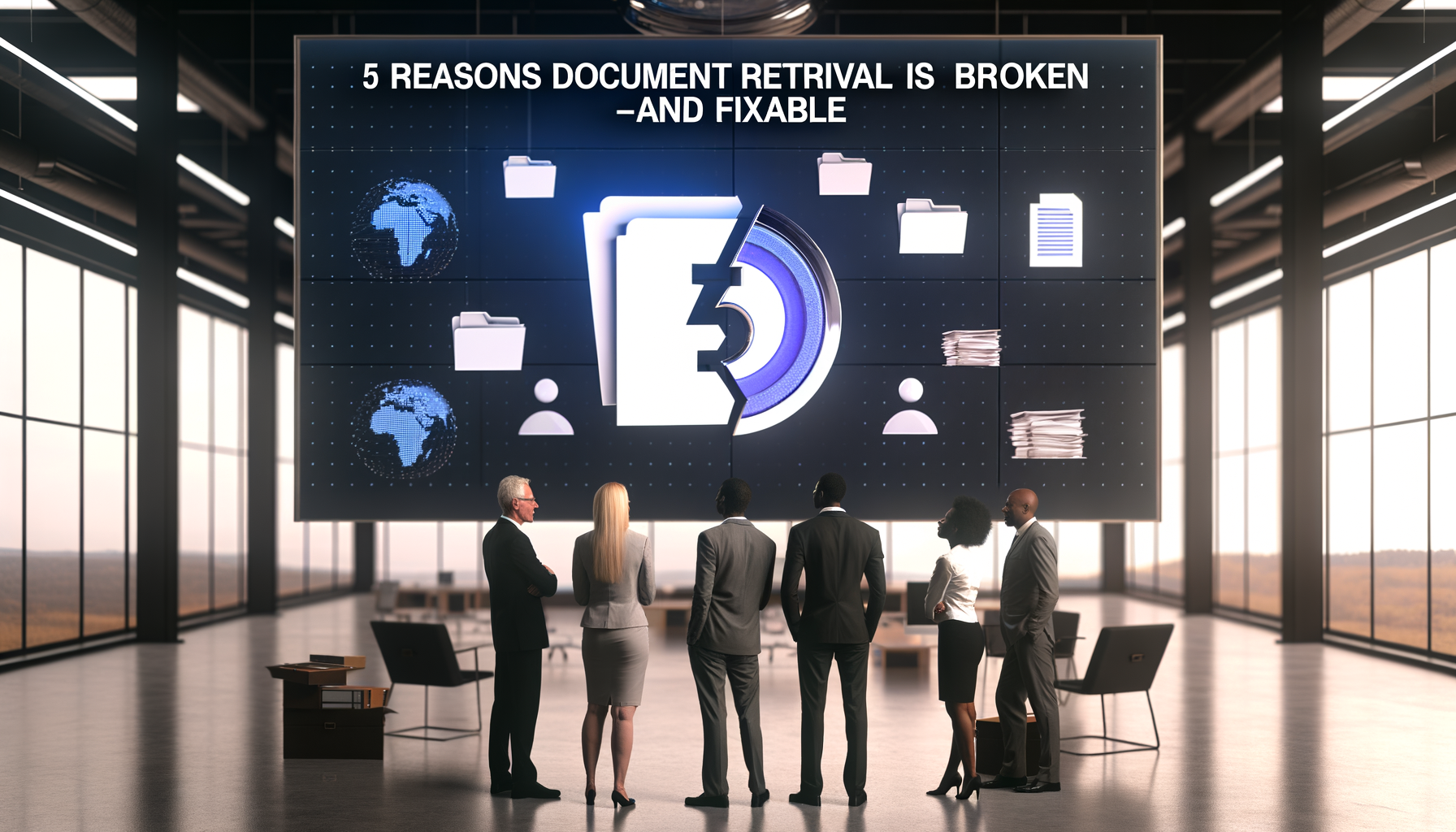
5 Reasons Document Retrieval is Broken (and Fixable)
As an entrepreneur in the tech space, I’ve often encountered the frustrations and inefficiencies of traditional document search systems. While these systems form the backbone of countless businesses, the truth is they are often riddled with barriers that make retrieving essential information more difficult than it should be. The good news? We stand on the cusp of a transformative era where AI-driven solutions, like those at RecordsKeeper AI, hold the keys to solving these age-old problems. Let me walk you through this maze and demonstrate not only where the current systems falter but also how artificial intelligence (AI) is empowering a smarter, more efficient way of retrieving documents.
The Inefficiencies of Traditional Document Search
Before delving into why traditional document search systems are fundamentally flawed, it’s worth recognising the reliance we place on them daily. Despite advancements in technology, many systems still default to outdated paradigms. Here are five undeniable reasons the traditional approach is broken:
1. Data Overload without Strategy
Organizations today handle an avalanche of data. With every passing moment, new records are created, making document retrieval without a strategic retrieval system challenging. Traditional systems often lack the necessary framework to prioritise, categorise, and index data efficiently. The overwhelming quantity without an effective strategy results in numerous dead ends and extended search times.
2. Inconsistent Indexing Methods
At the heart of retrieval issues lies inconsistent indexing. Over time, records and documents can be inconsistently named or categorised, leading to significant variances in search results. This inconsistency disrupts the retrieval process, leading to frustration and wasted resources. Moreover, without standardised criteria, even well-categorised documents can be challenging to locate.
3. Lack of Contextual Understanding
Traditional document retrieval fails to understand context. For example, if you’re searching for a document about a meeting with a particular client, typical systems might miss this nuance and simply offer results based on keywords alone. Without contextual understanding, the results can be more of a nuisance than a help, creating unnecessary obstacles in finding the right document.
4. Time-Consuming Processes
Anyone who has used conventional methods knows that the time taken to fetch documents from archives can be excessive. Manual retrieval processes are slow, and the reliance on human input introduces the potential for errors. Often, what should be a simple task turns into a long ordeal, affecting productivity and morale within teams.
5. Costly Maintenance and Scalability Issues
Running and maintaining traditional document search systems doesn’t come cheap. The infrastructure and manpower needed to keep these systems going are significant, and scalability is an ongoing issue. As businesses grow, their data expands, placing further stress on already strained systems.
AI’s Role in Transforming Document Retrieval
Enter AI-driven solutions, which offer promising strategies to tackle these traditional pitfalls. In my experience with Foundercrate and the insights gained from RecordsKeeper AI, here’s how AI retrieval is reshaping the document search landscape:
- Smart Data Management: AI systems can intelligently categorise and tag documents during creation. This proactive organisation aids faster, more efficient retrieval.
- Precision Indexing: AI algorithms excel at consistent and precise indexing, reducing the discrepancies found in traditional methods.
- Contextual Search Capabilities: AI-overseen searches understand context, applying nuanced algorithms that consider the intent behind a keyword, not just the keyword itself.
- Rapid Processing: AI reduces retrieval time significantly, employing parallel processing and machine learning to offer instantaneous results.
- Scalable Solutions: Cloud-based AI systems grow effortlessly with business needs, reducing maintenance costs and scaling painlessly.
Embracing the Future of Document Search
Document retrieval may be seen as a necessary albeit cumbersome task today, but AI is revolutionizing this perception quickly. As entrepreneurs, investors, and business leaders, it is our responsibility to embrace these smarter technologies, pivoting towards systems that promise agile, accurate, and contextually aware searches.
Implementing these solutions can fundamentally demeanour the way we interact with archives, enhancing productivity and satisfaction within our organisations. I encourage you to integrate AI-driven systems such as RecordsKeeper AI into your operations and experience the revolution firsthand. Stay connected for more insights and transformations in this rapidly evolving field.
Remember, the future of document search is not just about keeping up with change but leading it.
